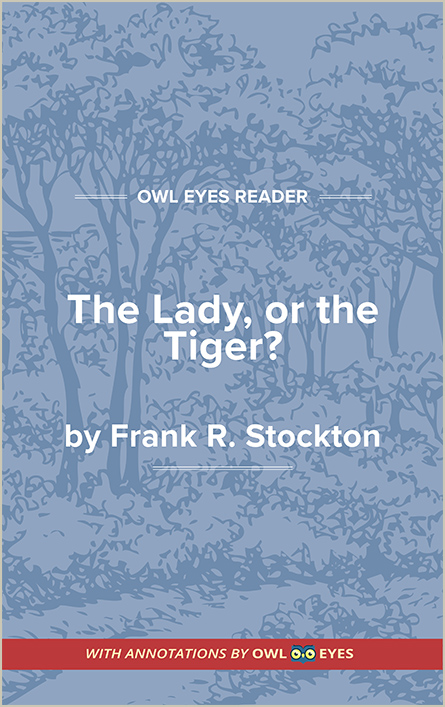Analysis Pages
Literary Devices in The Lady, or the Tiger?
Third-Person Omniscient Narration: Stockton uses a third-person omniscient narrator, meaning the narrator knows the thoughts of all of the characters as well as the history of the world in which the story takes place. The narrator tells the story as a fairy tale (“A long time ago in a land far, far away…”), which lends the story a sense of whimsy. The narrator also directly addresses readers. By elaborating on the princess’s plans, commenting on prior aspects of the story, and challenging readers’ interpretation of the story, the narrator places the responsibility of the decision of the lover’s fate on the readers. Because of the omniscient narration, the readers receive information from all characters, making it to remain unbiased at the end of the narrative.
Fantasy Setting: The story takes place in an imaginary time and place, in a kingdom with a “semi-barbaric” ruler. This ruler’s greatest creation, which also serves as the main setting for Stockton’s story, is the arena. A colossal structure, the arena has tiers upon tiers of seating for the citizens of the kingdom. It is a labyrinth of corridors and galleries. At the ground floor, there are doors draped by curtains which occlude what lies behind them. Behind one door waits a hungry tiger that will devour the prisoner on trial. After this, hired mourners in the audience will erupt into tears. Behind another door is a lady, a suitable bride handpicked by the king’s judges. Should the prisoner pick this door, priests are at the ready to marry the two, and citizens wait in expectation for a celebration. This arena is modeled after the Roman Colosseum, where criminal trials—as well as gladiator matches—took place.
Literary Devices Examples in The Lady, or the Tiger?:
The Lady, or the Tiger?
🔒"barbaric idealism...." See in text (The Lady, or the Tiger?)

